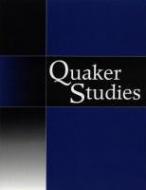
Abstract
Bertram Pickard belonged to a generation of Friends who helped to redefine the nature of Quaker international work between 1920 and 1940. In the aftermath of the First World War he played a major role in broadening the Quaker approach to peacemaking, encompassing not only conflict resolution through the peaceful settlement of disputes but also conflict prevention through institution-building at the international level. His support, however, for collective security and a peace enforcement role for the newly created League of Nations provoked strong opposition from those in London Yearly Meeting who viewed any support for the use of force as incompatible with Quaker beliefs. This paper attempts to highlight the dilemmas Pickard faced in trying to reconcile his profound pacifist convictions with his perceived responsibilities as a 'Quaker citizen', having to engage with the emergent realities of political power and the use of force at the inter-state level.
Recommended Citation
Waugh, Maureen
(2002)
"Quakers, Peace and the League of Nations: The Role of Bertram Pickard,"
Quaker Studies: Vol. 6:
Iss.
1, Article 4.
Available at:
https://digitalcommons.georgefox.edu/quakerstudies/vol6/iss1/4
